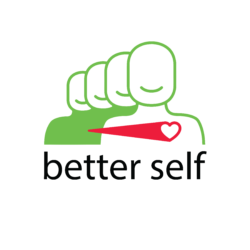To make work meaningful for your team, focus relentlessly on your customer or constituency, articulate a singular purpose and show how it connects to every team member’s role.
“Why would I want to work here, of all places?” If your team members can’t answer that question for themselves, you have important work to do.
Your organization has a purpose, but when employees are disconnected from it you miss an opportunity to make their work meaningful and create sustainable, profitable growth. Unfortunately, being disconnected is an elemental characteristic of work life during the coronavirus pandemic.
The quest for “meaning” might seem frivolous when millions have lost their jobs because of COVID-19—but it’s not. Instilling work with meaning and purpose is more important than ever because the pandemic and the economic collapse have sown uncertainty into every aspect of our day-to-day lives—health, wealth, income, education, social and family connections, the ability to attend religious services or volunteer.
In these circumstances, purposeful work is an island of stability. It provides empowerment, fulfillment, and an opportunity to contribute.
Business leaders need new tools to communicate, encourage, and lead in this unprecedented environment—but how do you reassure your team when you’re adrift yourself? How do you project confidence that you don’t feel? How do you prepare for the “new normal” when it is beyond your visible horizon?
Leading with Purpose Will Motivate Your Team
The core to motivation and engagement comes from the ability to answer this question: “Why am I working here, of all places?”
To answer that question you must articulate your group’s purpose and link it to each individual’s work.
Articulating a purpose may sound too touchy-feely as a response to a global health crisis mixed with a national social crisis mixed with a looming recession. It isn’t. In fact, this combination of woes provides a fertile garden for the seeds of purpose. This is your time to grow as a leader.
The first step is to ensure the team recognizes the impact their work has on others. This is the reward beyond the paycheck, the notion that what you do makes a difference beyond yourself. Not everyone is working on a life-saving vaccine or serving as a first responder, but every worker is doing something with a purpose—and it’s essential to stay relentlessly focused on it.
Focus on the Customer—and the Value You Deliver
Who does your organization exist to serve? It could be customers, other parts of your company, or the community at large. It could be anybody. The impact of your work might be felt by an individual, a small group, a large enterprise, or an entire an industry. Whoever it is, picture the people who benefit from your labor.
How do you make their lives better? In time of upheaval, how are their needs changing? What can you do right now to make a positive impact on their lives?
Focusing on your “customer,” whoever that might be, is the most direct and sustainable route to creating your future and achieving your purpose. Whatever that purpose is, it is your responsibility to articulate it with your team at every opportunity. Ask for their help, leverage their experience, and solicit their ideas so it becomes their purpose, too.
This doesn’t require fiery oratory. Just bring the stories of your customers—internal or external—to each discussion and invite others to do the same. This will reinforce the impact of the team’s work. Enlist everyone for this common purpose—even where (especially where) the connection from their job to the vision is not obvious. Every support person in every role needs to know how their work is an essential piece of the puzzle.
They need your help, however, connecting their day-to-day tasks to the big picture.
Connect the Day-to-Day to the Big Picture
Workers can become cynical, pessimistic, and unmotivated when they can’t connect the work they do with the lofty, often abstract vision described by executives, notes Andrew Carton, associate professor of management at the Wharton School..
Carton described how President Kennedy bridged this gap for thousands of NASA workers in the 2017 paper I’m Not Mopping the Floors, I’m Putting a Man on the Moon: How NASA Leaders Enhanced the Meaningfulness of Work by Changing the Meaning of Work.
“Even people who were quite far removed from the famous goal of landing a man on the moon reported feeling an incredible connection to this ultimate goal and would often define their everyday work in terms of that ultimate goal,” Carton said during an interview on the Knowledge@Wharton podcast.
“Rather than talking about, ‘I’m fixing electrical wiring’ or ‘I’m stitching space suits’ or ‘I’m mopping the floors,’ they would actually identify their work as, ‘I’m putting a man on the moon.’ It was a strikingly unique period of time where many people . . . across the entire organization had these kinds of perceptions.”
To help people see the link from their work to the organization’s mission, Carton said, it’s important to distill everything into a single organizational purpose so that whenever team members collaborate, talk, or share their work it will be clear they are pursuing the same goal.
When You Lead with Purpose, Everyone Wins
Keeping your team intensely focused on a single, shared, customer-focused purpose will ensure their work has meaning, enhance their performance, and give them a powerful reason to work here, of all places.
If you’ve found this article interesting and would like to learn more about how its author, Steve Mendelsohn, can help you in this area of leadership development, please contact us for more information.

